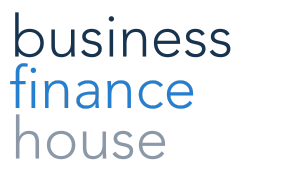When it comes to financing your business, the choices can be overwhelming. Among the various options available, VAT loans and traditional business loans stand out as popular choices. Understanding the differences between these options is crucial for making informed financial decisions that align with your business’s needs and goals.
Understanding VAT Loans:
VAT loans, or Value Added Tax loans, are a specialised form of financing designed to help businesses manage their VAT liabilities more effectively. Unlike traditional business loans, which may be used for various purposes, VAT loans specifically address the need to cover VAT payments. These loans provide businesses with quick access to funds, ensuring that they can meet their VAT obligations on time and avoid potential financial strain.
Traditional Business Loans Overview:
On the other hand, traditional business loans encompass a broader spectrum of financing options. These can include term loans, lines of credit, Small Business Administration (SBA) loans, and more. Traditional business loans are versatile, allowing businesses to secure funding for various purposes, such as expanding operations, purchasing equipment, or managing day-to-day expenses. They often come with different repayment terms, interest rates, and eligibility criteria.

Key Differences Between VAT Loans and Traditional Business Loans
When evaluating financing options, it’s essential to consider the distinct features of VAT loans and traditional business loans:
Interest Rates and Repayment Terms:
- VAT loans typically come with shorter repayment terms and may have higher interest rates compared to traditional business loans.
- Traditional business loans offer more flexibility in terms of repayment schedules and interest rates, allowing businesses to negotiate favourable terms based on their creditworthiness and financial stability.
Eligibility Criteria:
- VAT loans are specifically tailored for businesses with VAT obligations.
- Traditional business loans may have broader eligibility criteria, including credit history, business revenue, collateral, and industry type.
Application and Approval Processes:
- VAT loans often have streamlined application and approval processes, with lenders focusing on VAT compliance and the ability to repay the loan.
- Traditional business loans may involve more extensive documentation and evaluation procedures, requiring comprehensive financial statements and business plans.
Use Cases and Restrictions:
- VAT loans are intended for covering VAT payments and related expenses, restricting their use to VAT-related purposes.
- Traditional business loans offer more versatility, allowing businesses to utilise the funds for various business initiatives without specific usage restrictions.
When to Choose a VAT Loan
VAT loans are an ideal option in specific scenarios tailored to address challenges related to VAT payments and optimise cash flow. Opt for a VAT loan in the following circumstances:
- Experiencing seasonal variations in sales, leading to unpredictable cash flow patterns.
- Often dealing with delayed customer payments, a VAT loan offers a solution to bridge the payment gap efficiently.
- Encountering unexpected increases in VAT obligations requiring immediate payment.
When to Opt for a Traditional Business Loan
Traditional business loans are suitable for a wide range of financing needs, offering flexibility in terms of usage and repayment structures. Consider opting for a traditional business loan in the following scenarios:
- Funding expansion initiatives, such as opening new locations, launching product lines, or entering new markets.
- Purchasing essential equipment or machinery to improve operational efficiency and productivity.
- Investing in marketing and advertising campaigns to boost brand awareness and attract new customers.
- Managing working capital needs during periods of growth or economic uncertainty.
Tips for Making the Right Decision
As you evaluate your financing options, consider the following tips to make an informed decision:
- Assess your business needs and financial goals to determine the most suitable financing solution.
- Evaluate the terms and conditions of VAT loans and traditional business loans, including interest rates, repayment terms, and eligibility criteria.
- Consider consulting with financial advisors or lending professionals to explore personalised financing options tailored to your business requirements.
- Review case studies and success stories to gain insights into how businesses similar to yours have benefited from different financing solutions.
Choosing between VAT loans and traditional business loans requires careful consideration of your business’s financial situation, operational requirements, and long-term objectives. While VAT loans offer specific benefits for managing VAT obligations, traditional business loans provide flexibility in addressing diverse financing needs. By understanding the key differences between these options and assessing your business’s unique circumstances, you can make an informed decision that aligns with your financial goals and supports sustainable growth.
Business Finance House is here to empower your growth journey. Whether you’re looking for VAT loans, traditional business loans, or tailored financing options, we’ve got you covered. Get in touch today!





